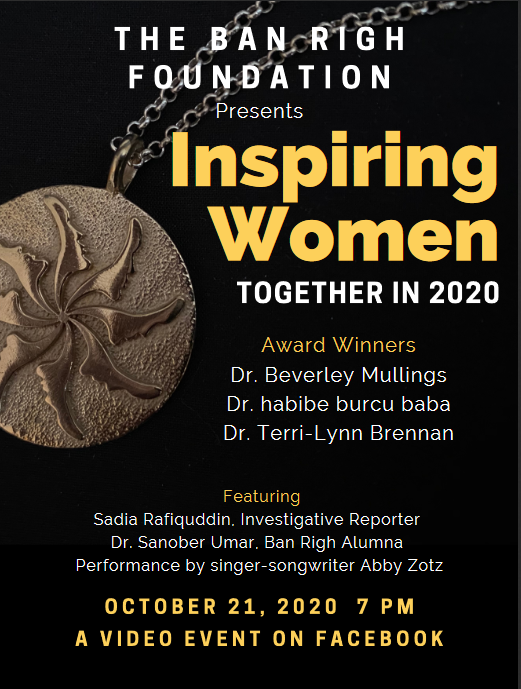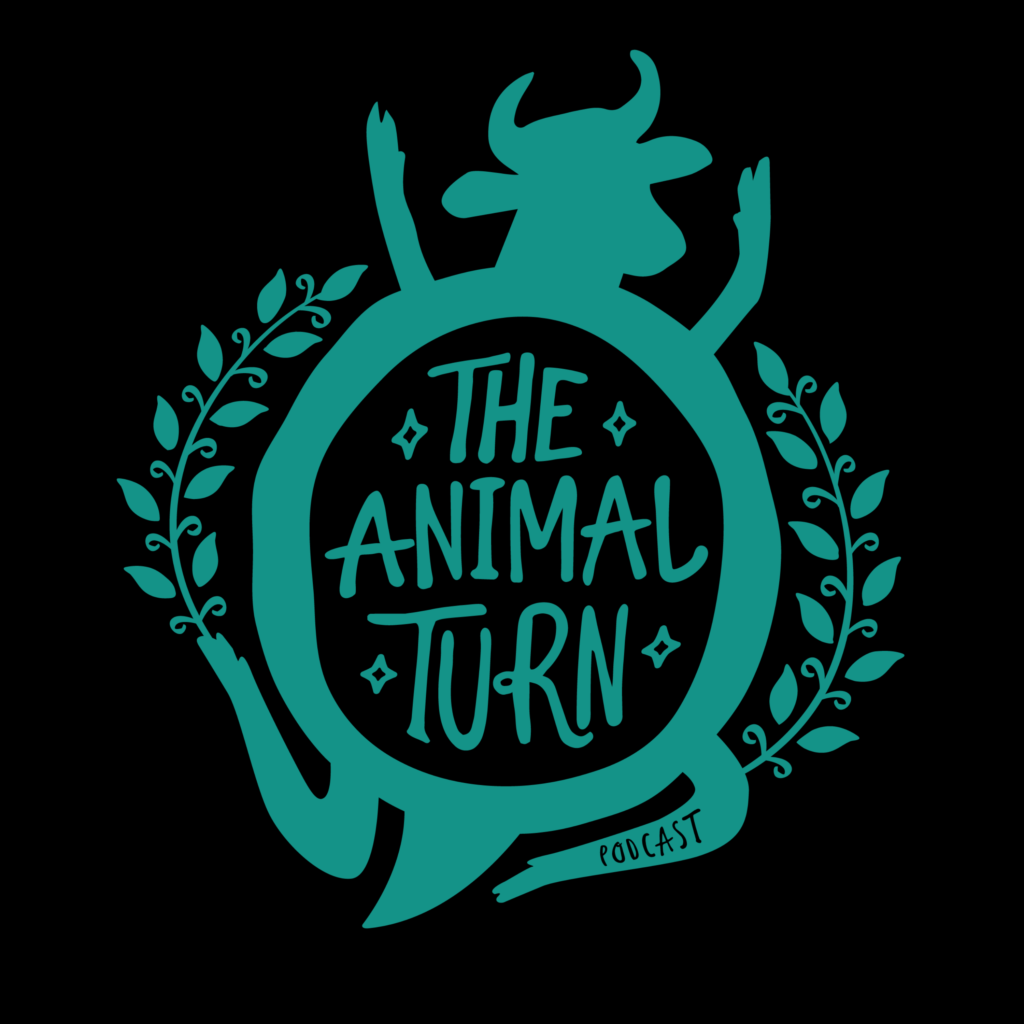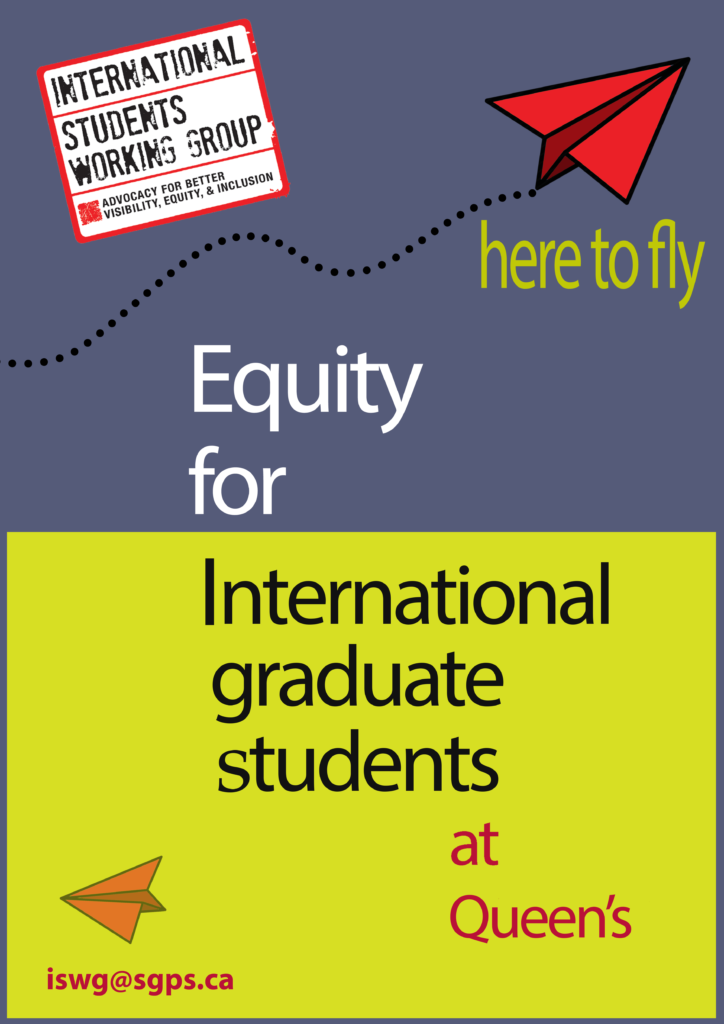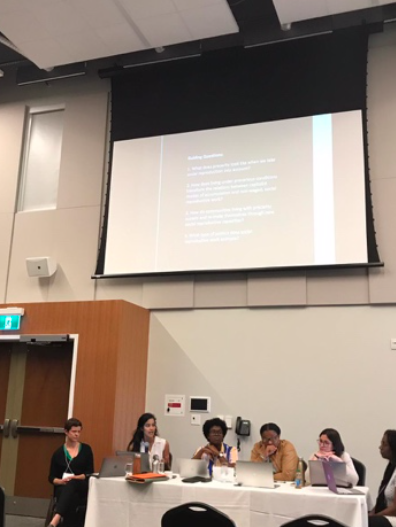CURRENT EVENTS
GEELs Reels
We have been hosting virtual film screenings in the Department of Geography and Planning. If you’re interested in participating, please get in touch with Carolyn Prouse at cpv@queensu.ca. The next GEELs Reels will be held in November.
SNID 2022-2023
SNID (Studies in National and International Development) has started another year of its seminar series featuring critical scholars from all over the world speaking to issues of decoloniality. Co-chaired by GEELs’ own Dr. Carolyn Prouse (with Dr. Ayca Tomac) and coordinated by GEELs’ PhD Student Monique Carneiro Assunção, these virtual seminars are being turned into podcasts by Queen’s campus radio station CFRC. Find the latest here on COVID-19 and Global Vaccine (In)Equity.
The Animal Turn
Claudia Hirtenfelder recently finished the third season of The Animal Turn Podcast, titled “Animals and The Urban.” Of particular interest here is her episode with Yamini Narayanan in which she discussed the concept of informality and how it shapes everyday human-animal relations in urban India.
PAST EVENTS
GEELs takes the AAG AGM by storm!
This year, the GEELs lab hosted numerous panels for the American Association of Geographers’ Annual General Meeting.
Dairon Morejon Perez, Hilal Kara and Nathalia Santos Ocasio organized two panel sessions under the title “COVID-19, Digital Activism and the Changing Dynamics of Social Movements”. Drawing on cases studies from Israel-Palestine, Portugal, Turkey, South America, Cuba and the United States, 8 panelists discussed how social movements have responded and adapted to ongoing pandemic-related lockdowns and the crises associated to this contingence. In particular, panelists highlighted the benefits, tensions and limits posed by the increasing use of social media platforms within social movements.
Shannon Clarke and Beverley Mullings also hosted two panel sessions, in partnership with the Metal Health in the Academy Affinity Group. The sessions were titled “Contesting, Negotiating, Living; New Research Directions in Mental Health”, and featured presenters speaking to their lived experiences navigating mental health and disability in the academy.
Finally, Kim Hill-Tout and Claudia Hirtenfelder organized a session titled “Paradoxical Foodscapes and COVID-19”. This panel hosted researchers discussing food and COVID from various different angles, including policy interventions, virtual foodscapes, and Canadian agriculture.
GEELs members successfully host the 2020/21 season of SNID online!

Sept 2020-April 2021
Studies in National and International Development (SNID) is the longest-running interdisciplinary seminar series at Queen’s University. For over 30 years, SNID has hosted scholars from some of the world’s leading universities and research institutes. This year one of GEELs PIs, Carolyn Prouse, co-chaired the series with Dr. Ayca Tomac (Queen’s DEVS), and GEELs PhD candidate Dairon Morejon Perez served as series coordinator. Due to the global pandemic the current season was online, yet featured the largest audiences the series has seen. Throughout the year we were honoured to host scholars such as Dr. Katherine McKittrick (Queen’s) and Dr. Maria Constanza Guzman (York University), and learn from scholars and activists on a wide variety of topics ranging from mutual aid on Turtle Island to migrant camps in Greece. Check out CFRC to find podcasts of the season’s talks!
Dr. Beverley Mullings receives the annual Ban Righ Inspiring Women Award!
October 2020

GEELs and the Queen’s community recently celebrated the work and mentorship of Dr. Beverley Mullings, who received the annual Ban Right Inspiring Women Award from the Ban Righ Foundation. Mullings’s nomination was supported by GEELs members. The Inspiring Women: Together in 2020 event was held virtually on October 21st.
Congratulations to Beverley on this well-deserved recognition!
You can watch the ceremony here.

Beyond Canada: International Thought and Scholarship
July 2020
In a podcast designed to understand the opportunities and challenges presented by international research, Claudia Hirtenfelder talks to graduate and professional students at Queen’s University about their work. In her capacity as the International Student Affairs Commissioner for the SGPS, Claudia aims to highlight not only the incredible work of international students but the significant contributions made by those who dare to do work Beyond Canada.
Several GEELS Fellows have appeared on the podcast, including Hilal Kara and Priscilla Apronti in a panel discussion on research in Turkey and Ghana respectively as well as Nathalia Santos Ocasio about her research on social infrastructure in Santiago. Other episodes include conversations about narrating transgender relations in India, police surveillance in 18th century France; Security dilemmas in Brazil; primate conservation in Costa Rica; the Queen’s Elizabeth Scholars work on health; and the health initiatives of west Africans living in Toronto.
Beyond Canada is sponsored by the Society of Professional and Graduate Students (SGPS) and is part of the CFRC Podcast Network.

Season 1 of ‘The Animal Turn’
July 2020
Claudia Hirtenfelder has completed the first Season of her Podcast ‘The Animal Turn’ in which she interviews scholars about key concepts in animal studies. The first season comprises of ten episodes all focused on concepts pertaining to animals and the law. Claudia spoke to philosophers, policy experts, lawyers, and historians before finishing off the season with a graduate review.
Episodes 4 and 5 are particularly relevant to GEELs’ concerns with decoloniality; they deal with entanglements of human and animal lives. In episode 4, Claudia speaks to prominent legal scholar about the concept of personhood and Maneesha expertly weaves how intertwined the legal and social lives are of humans and animals. In episode 5, Charlotte Blattner discusses extraterritorial jurisdiction and illustrates the significance of international law in establishing ‘a race to the top’ or a ‘race to the bottom’ in legislation that protects vulnerable populations of humans and animals.
The Animal Turn Podcast is sponsored by the Animals in Philosophy, Politics, Law and Ethics (A.P.P.L.E.) and is part or the iROAR Network.
SNID talk with Prof Bronwyn Parry, March 2020
GEELs’ member Carolyn Prouse, along with fellow Queen’s faculty Laura Cameron (Geography & Planning), Rebecca Hall (Global Development Studies), and Sammi King (Gender Studies, Kinesiology and Health Studies) hosted economic geographer Prof Bronwyn Parry from King’s College London in March 2020. Click here for a link to her public SNID talk on Assisted Reproductive Technologies in India.

Advocacy for International Students
March 2020
GEELS members Nathalia Santos Ocasio, Priscilla Apronti, Hilal Kara and Claudia Hirtenfelder have been critical members to the establishment of advocacy networks for international graduate students at Queen’s University. They are all founding members of the International Student Caucus under PSAC901 as well as of the International Student Working Group under the SGPS. Through these bodies they have been instrumental in running an open letter campaign highlighting the challenges of international students at the university as well as a petition campaign titled Here to Fly which acquired over300 signatures requesting that international graduate students have the same payable fees as domestic graduate students.
2020 Cumberland Lecture, University of Auckland
Beverley delivered the 2020 Cumberland Lecture at the University of Auckland in December 2019. Her talk entitled: Caliban, Social Reproduction and our Common Future explored what Caribbean labour geographies can tell us about social reproduction in a world of automation, free market fundamentalism and climate change. The Cumberland Lecture is an annual lecture hosted by the School of Environment. It was named in honour of Professor Kenneth Brailey Cumberland, the first Professor of Geography at the University of Auckland.

York GenUrb Project, September 2019
GEELs’ members Grace Adeniyi-Ogunyankin and Beverley Mullings are members of York’s GenUrb project. In September 2019, GenUrb hosted a conference at York University in Toronto, Canada.
Grace participated in a round table discussion about Decolonizing the Urban in a Time of Neocolonialism, and geographer Katherine McKittrick (Queen’s Gender Studies) delivered a keynote lecture entitled Living Just Enough for the City / Volume VI / Black Methodology. The videos of the roundtable and keynote can be found here.
Visioning Alternative Caribbean Futures?
Beverley developed a module entitled: Visioning Alternative Caribbean Futures? that examined alternative conceptions of transformation that re-center questions of social and environmental justice and what it means to live a ‘good life’ in uniquely Caribbean ways. The module was part of 10-week online course organized by the Caribbean Feminist Action Network (CFAN) entitled Society, Ecology and Economics (SEE) in the Caribbean – How do we organize to live? (Feb 10, 2020-April 13, 2020). CFAN is an informal alliance of persons and organisations engaged in information sharing, knowledge building and solidarity. One of its objectives is to promote inter-connectedness of Caribbean social justice and gender equality activists so that we can better engage in solidarity for human rights, equality, development, environmental justice and peace. The course aims to provide a forum for collective learning and reflection on the main trends in Caribbean economic development and ecology; to build critical understanding of the policy choices being made by Caribbean governments in addressing debt, growth and development within the framework of ecological crisis; to support advocacy and activism for macroeconomic and environmental policies that confront unequal power relations in the generation and distribution of resources for development.
WRITING & RESEARCH
Prouse, C. (forthcoming) Affective registers of favela infrastructure in Rio de Janeiro. Social and Cultural Geography [Accepted August 2021]
Santos Ocasio, N. and Mullings, B (2021) “Sociability and Social Reproduction in Times of Disaster: Exploring the Role of Expressive Urban Cultural Practices in Haiti and Puerto Rico”. In Peake, L., Koleth, E., Raj, R., Patrick, D., and Tanyildiz, G. S. (eds) A feminist urban theory for our time: rethinking social reproduction, the urban and its constitutive outside. (London: Antipode Book Series).
Prouse, C. (2021) Social reproductive metabolisms of human milk banking in Brazil. Geoforum 121: 105-114
Hirtenfelder, C. & Prouse, C. (2021) Milking economies: Multispecies entanglements in the infant formula industry. Environment and Planning E: Nature and Space. Online first: DOI 10.1177/25148486211036113
Adeniyi Ogunyankin, G. (2019) “The city of our dream”: Owambe urbanism and low-income women’s resistance in Ibadan, Nigeria’. International Journal of Urban and Regional Research, 43(3), 423-441.
Adeniyi Ogunyankin, G. (2019). Mothering, urbanization and Africa. O’Brien Hallestein, L, O’Reilly, A. & Vandenbeld Giles, M. The Routledge companion to motherhood. Pp. 414-425.
Clarke, S. https://www.queensu.ca/studentexperience/queens-reads/books-migration
Clarke, S. (2019). The (un)making of Bimshire and the Black Englishman: Barbadian nationalism in post-colonial Britain. African and Black Diaspora: An International Journal, 12(1), 64–76. https://doi.org/10.1080/17528631.2018.1519896
Prouse C (2019) Subversive formalization: Effort to (re)form land, labor, and behavior in a carioca favela. Urban Geography 40(10): 1548-1567.
Prouse, C. (2019). Of mosquitoes and mega events: Urban political ecologies of the more-than-human city. In S Darnell & R Millington (Eds.) Sport, Development and Environmental Sustainability. Routledge

